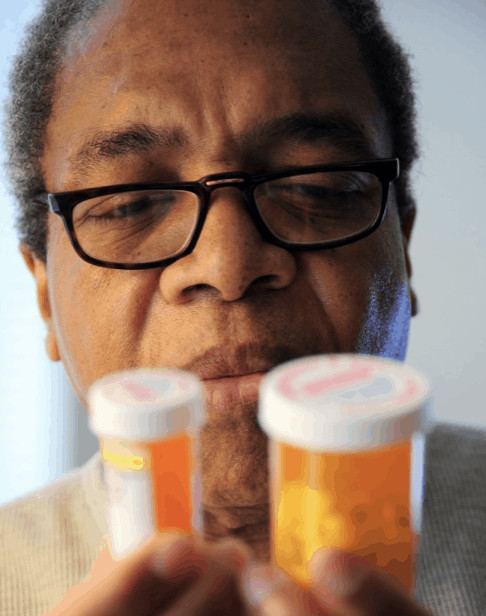
Chances are that if you are age 65 years and older, you take several different types of medications including over-the-counter medicines, prescription medicines, supplements, or vitamins. These medicines come in many different forms: patches, powders, creams, drops, sprays, injections, tablets and others. It’s no wonder that keeping all this straight can be a challenge. Are you taking your medications safely? Here are five important tips to help guide you:
#1 Participate. It’s your Health

Talking to your health care provider can sometimes be a challenge. With short office visits and medical terms that can be confusing, not everyone is able or comfortable discussing questions about their health with their doctor. Yet, this is very important! That is why this is the first tip. If you are able, it is important to be an active, assertive participant in your own healthcare. If you are not able, make sure to appoint someone who has your best interests in mind.
How many times have you left a medical appointment with questions afterwards? We all probably have! It is essential to come to your appointment prepared. Spend a few minutes before the appointment to gather your medicine list and jot down some important topics or questions you would like to discuss with your provider. This will help keep you and your health care provider on track during the visit.
#2 Read & Follow the entire label
Let’s face it, labels on medications are confusing and long. Reading the printout from the pharmacy or label on the package can be daunting and even scary, but medicine labels have a lot of important information on them. For example, this label for a combination pain reliever and sleep aid product tells us the active ingredient and milligram strength of the medicine. It also gives us important warnings and health concerns. The active ingredient is especially important to note because sometimes different over-the-counter formulations may contain the same active ingredient. For example, pain relievers such as Acetaminophen/Tylenol® may also be in cold and cough products or nighttime medicines like the one shown here. If you don’t look for this information on the label and accidentally take more acetaminophen, you could unknowingly double your dose or exceed the maximum dose for the day. It is also important to make sure you know how much medicine to take, how often to take it, and whether there are certain foods, beverages, or other medicines you should avoid while taking your medicine.
#3 Write it down
A medicine list or medicine tracker is a useful tool to help make sure that you, every doctor that you see, and anyone that helps you with your medicines know about all of the medicines you are taking. This list should be updated regularly so it remains current and accurate. Many lists can be found on the internet and printed to fill out, from your doctor, or even electronic on your phone via an app. Whether you are on one or twenty-one different medications, it is important to keep an up-to-date medicine list that includes all prescription, over-the-counter medicines, supplements, and vitamins. Also include the following:
- Name of medicine
- Dose of medicine
- Why you take the medicine
- The time of day you take the medicine
#4 Keep medicine up, away, & out of sight
Pillboxes or medicine reminders are one of the most common places that a child can access a large amount of medication quickly. Often the unsuspecting grandparent is the owner of these types of medicine boxes. Many pill containers are child resistant but are not child-proof. Children often mistake pills or medicine for candy! The Missouri Poison Center provides a great learning tool for families to recognize how easy this can be at /look-a-like/.
While pillboxes and medicine minders do help people keep their medications handy and managed, it is important to make sure that they are put up, away, & out of sight when you have children and teens, adult visitors and pets in your home.
#5 Be prepared: know who to call
The Missouri Poison Center is an important resource for people of all ages. We are not just for parents or families with young children. Adults made up approximately 32% of all calls to the poison center in 2019. Save the Poison Help line in your cell phone and post in a visible place such as your refrigerator or close to your landline telephone or computer: 1-800-222-1222.
For any questions or concerns about any medications, call the Poison Help line at 1-800-222-1222. Specially trained nurses and pharmacists are available 24/7/365 to answer your questions. The service is free and confidential.

